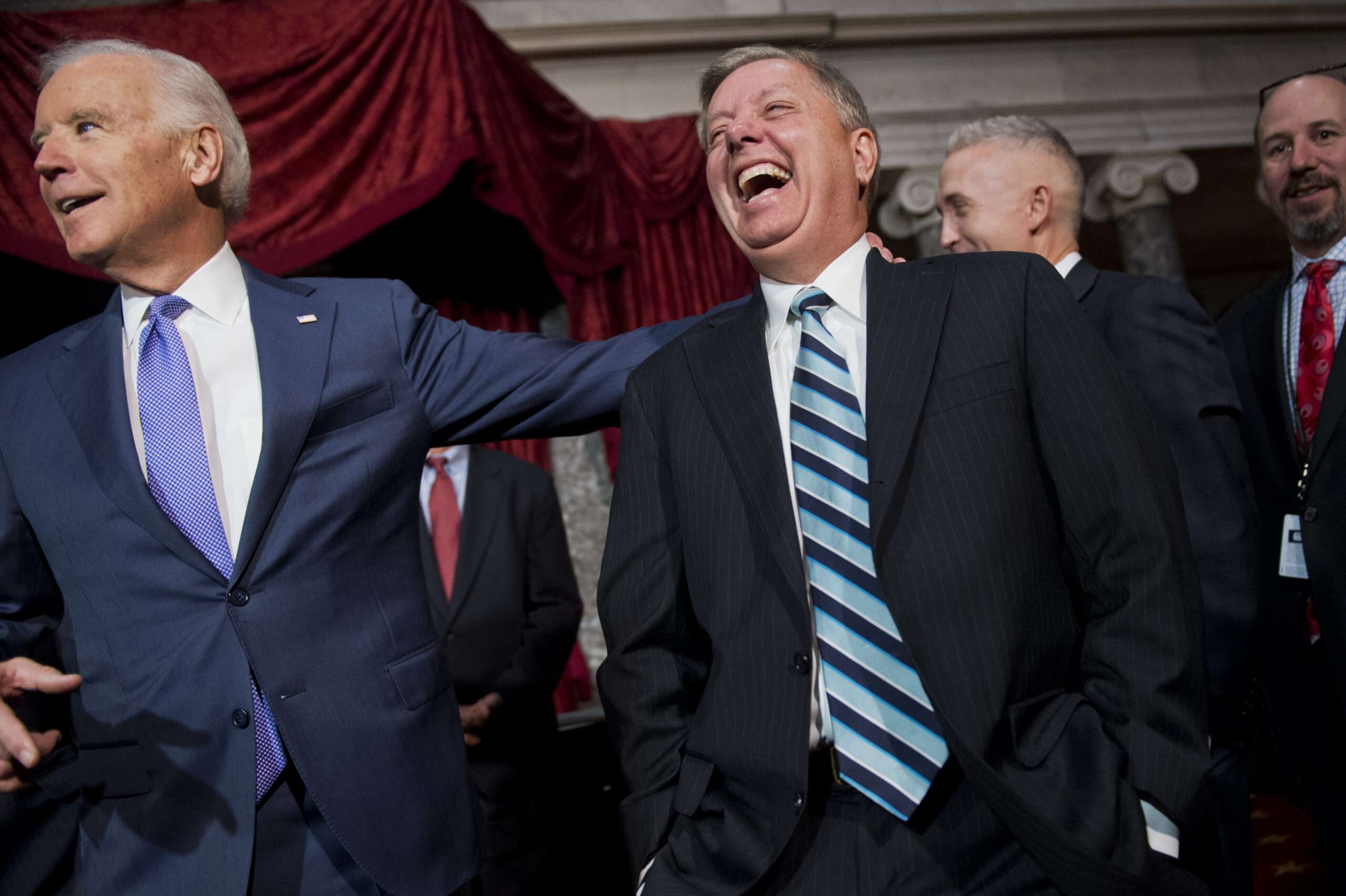Biden and Graham Allegedly Conspired on Strategies for Military Support to Saudi Arabia
In the often contentious landscape of U.S. politics, the one area where bipartisan consensus emerges is in military engagement and potential war participation. Bob Woodward’s new book, “War,” sheds light on a candid conversation between Senator Lindsey Graham (R–S.C.) and President Joe Biden regarding the possibility of U.S. military action, specifically in relation to Saudi Arabia. According to Woodward, Graham asserted that only Biden had the credibility to facilitate a defense treaty with Saudi Arabia, arguing that a Democratic president would be essential in persuading Democratic lawmakers to support military action on behalf of Saudi interests. This exchange occurred during Biden’s pursuit of a significant deal that aimed to enhance security collaborations among the U.S., Saudi Arabia, and Israel. Graham’s push for such a treaty indicates not just a tactical political maneuver but a broader strategy to ensure stability and allied support within the Middle East.
The backdrop of this discussion highlights ongoing negotiations, including Graham’s public interactions with Saudi crown prince Mohammed bin Salman in April 2023, aimed at establishing a durable U.S.-led defense framework in the region. At that time, the Biden administration was careful to present its willingness to engage with Saudi Arabia without extending full military commitments, trying to temper expectations. An early indicator of these discussions was a defense agreement made with Bahrain, which was positioned as lacking the formalities of a treaty to avoid legislative scrutiny. This cautious approach, however, slighted the substantial commitments that Biden and his allies were openly discussing behind closed doors. Graham revealed that the Saudi crown prince was interested in the deal primarily for the protection it would afford against regional threats, particularly the need for a nuclear deterrent.
The conversation revealed additional layers of political strategy. Graham pointed out that a Republican administration might struggle to pass a comparable defense agreement due to Democratic opposition rooted in their distaste for both Trump and Israeli Prime Minister Benjamin Netanyahu. He estimated that bipartisan support could hinge on Republican backing if encouraged by Israeli interests. Biden’s confidence in rallying enough Democratic support underscored a calculated political alignment, even acknowledging Trump’s integral role in previous Middle Eastern accords.
The dynamics surrounding military agreements reflect broader trends in Congressional attitudes toward war powers, particularly regarding Saudi relations. During the Trump presidency, lawmakers exhibited a greater resistance to military engagement tied to Saudi Arabia, with bipartisan efforts to withdraw from Yemen’s conflict met by Trump’s veto. In contrast, Biden’s administration, leveraging its foreign policy flexibility, sought to persuade Congress—evidenced by Sanderson’s withdrawal of a resolution aimed at limiting military support for Saudi incursions in Yemen. However, the notion of a formal defense pact was met with considerable scrutiny, with prominent Democrats articulating apprehensions about American troops potentially engaging on behalf of an authoritarian regime.
Significantly, internal Saudi hesitance put a damper on the prospect of finalizing a defense deal. Following the October 7 attacks on Israel, bin Salman began reevaluating the risks associated with aligning too closely with Israel, ultimately leading to negotiations that considered omitting Israeli involvement from the prospective agreement. The Saudi leader’s growing apprehension, particularly the fear for his safety should he alienate his domestic constituency over Palestinian rights, signified a crucial turning point in the negotiations. His frank admission to U.S. Secretary of State Antony Blinken highlighted the intense pressure he felt to balance foreign agreements with domestic political imperatives.
In the ensuing months, despite the Biden administration’s continual outreach to bin Salman, the likelihood of a robust defense treaty appeared dim. The administration has focused its messaging on encouraging Israel to make concessions regarding Palestinian rights to maintain Saudi cooperation. However, the crux of the matter has become less about the safety of American lives and more about the political stakes for Saudi leadership. The juxtaposition of priorities in Woodward’s narrative emphasizes a troubling willingness among U.S. lawmakers to leverage American military resources in exchange for strategic alliances, obscuring the potential cost to American troops and the long-term implications of entanglements in foreign conflicts.
Share this content:












Post Comment